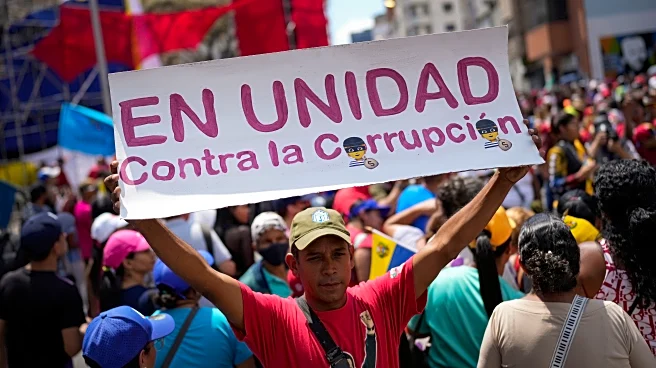Rapid Read • 9 min read
El Salvador has enacted a new Investment Banking Law that authorizes investment banks to manage Bitcoin and digital assets, effective August 2025. This law allows investment banks, distinct from commercial banks, to handle Bitcoin and digital assets under a PSAD (Digital Asset Service Provider) license. The initiative, led by President Nayib Bukele and Juan Carlos Reyes of the Commission of Digital Assets, aims to expand the role of digital assets in the country's financial system. The law enables investment banks to offer services such as deposits, lending, and investments in Bitcoin to sophisticated investors, marking a significant shift in El Salvador's financial landscape. This move is part of the country's broader strategy to position itself as a leader in digital asset integration and attract international capital.
AD
The legalization of Bitcoin investment banks in El Salvador represents a strategic effort to differentiate the country from its regional neighbors and reinforce its status as a crypto-friendly jurisdiction. This policy could influence other Latin American financial markets to consider similar digital asset integration strategies. The move has drawn international attention, particularly from the IMF, which has previously expressed concerns about the economic risks associated with Bitcoin adoption. Despite these concerns, El Salvador has secured a $120 million disbursement from the IMF as part of a larger lending agreement, indicating a nuanced negotiation to continue its Bitcoin-based economic strategy. The initiative could set a precedent for national banking systems incorporating cryptocurrencies, especially in emerging economies seeking innovative financial solutions.
The success of El Salvador's initiative will depend on several factors, including the stability of the Bitcoin market, the effectiveness of the regulatory framework, and the level of participation from both local and global investors. The government has shown a commitment to its crypto agenda by acquiring additional Bitcoin and exploring the establishment of a 'Bitcoin city' and expanding mining operations. These developments reflect a broader vision to leverage Bitcoin as a stabilizing force in a region historically affected by inflationary pressures. The outcome of this initiative could influence other countries' approaches to digital asset integration and financial innovation.
El Salvador's move to legalize Bitcoin investment banks highlights the potential for digital assets to serve as a hedge against economic volatility and diversify financial infrastructure. This development raises questions about the long-term implications for financial stability and the role of cryptocurrencies in national economies. The initiative also underscores the ethical and regulatory challenges associated with integrating digital assets into traditional financial systems, particularly in regions with existing economic vulnerabilities.
AD
More Stories You Might Enjoy













